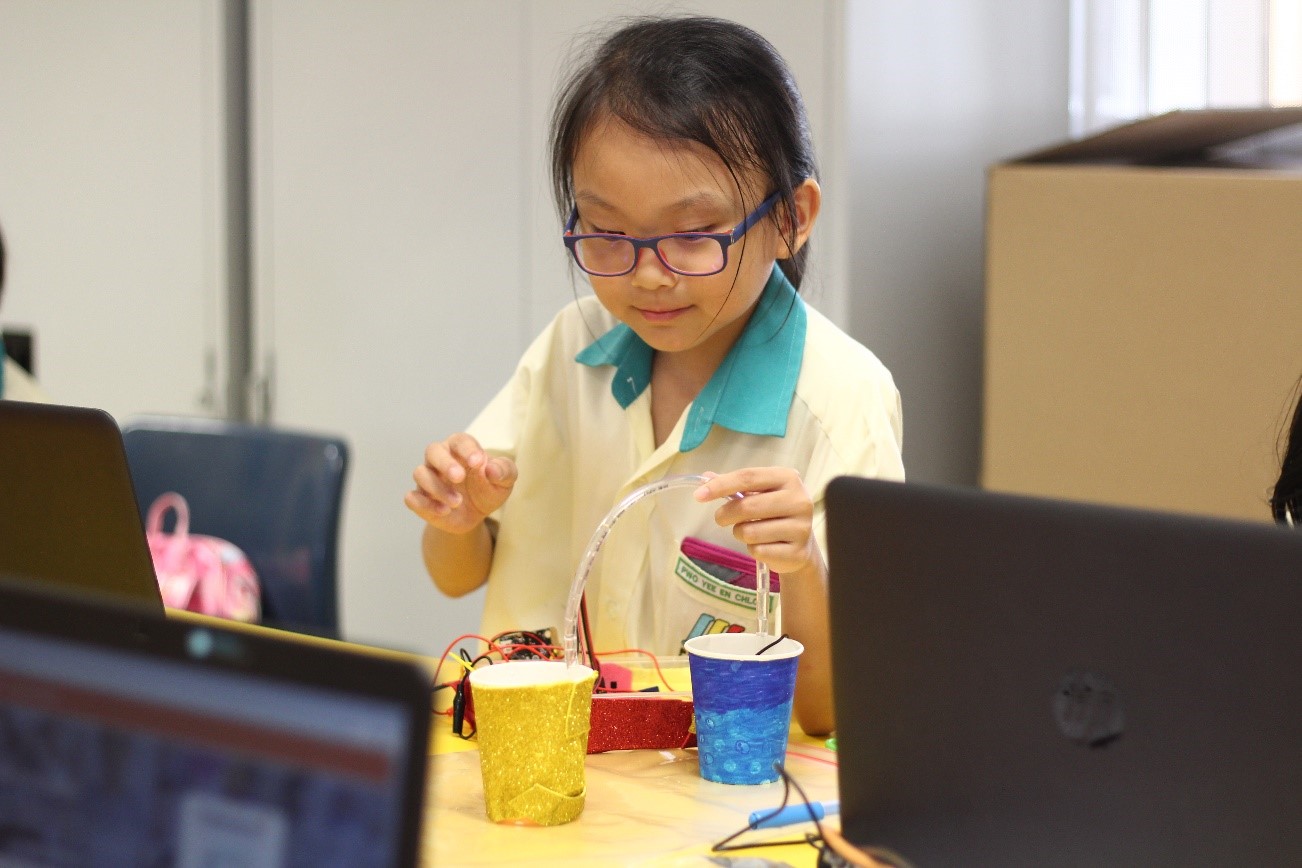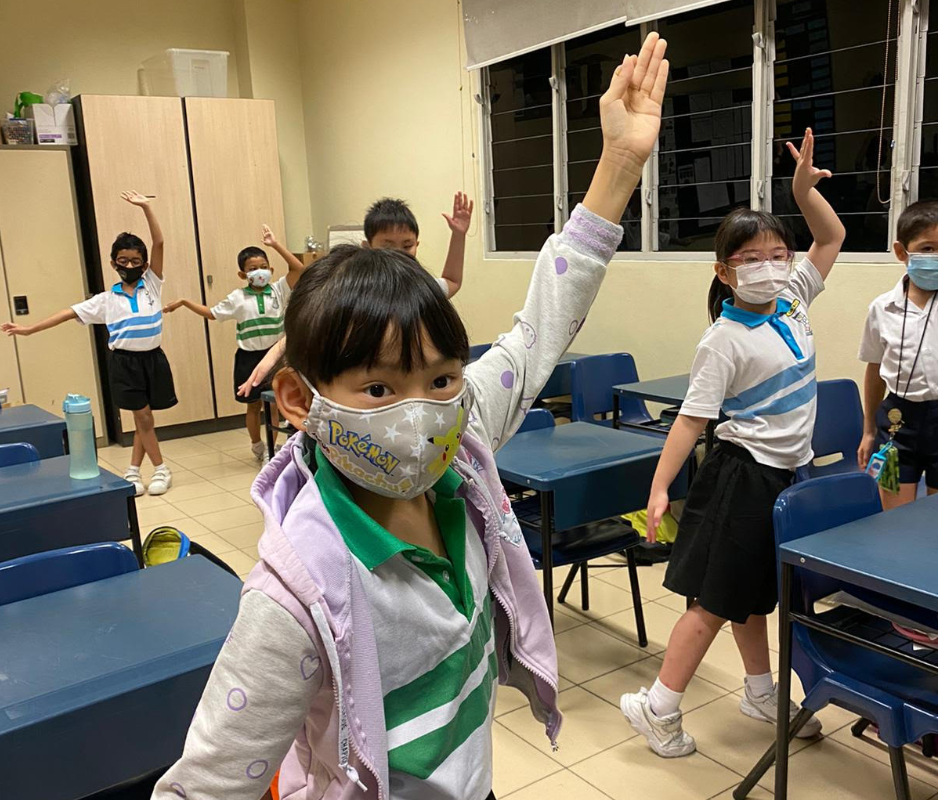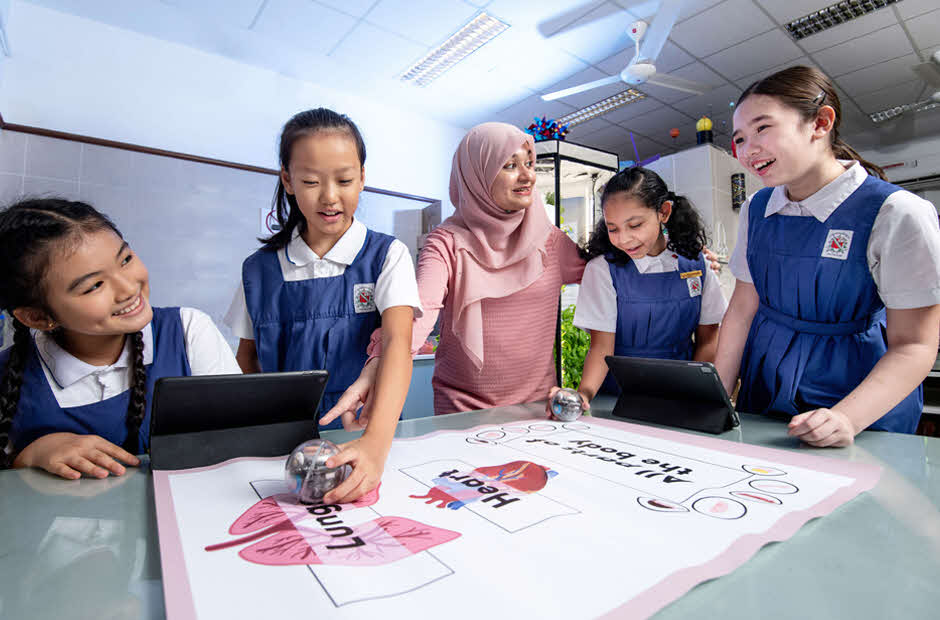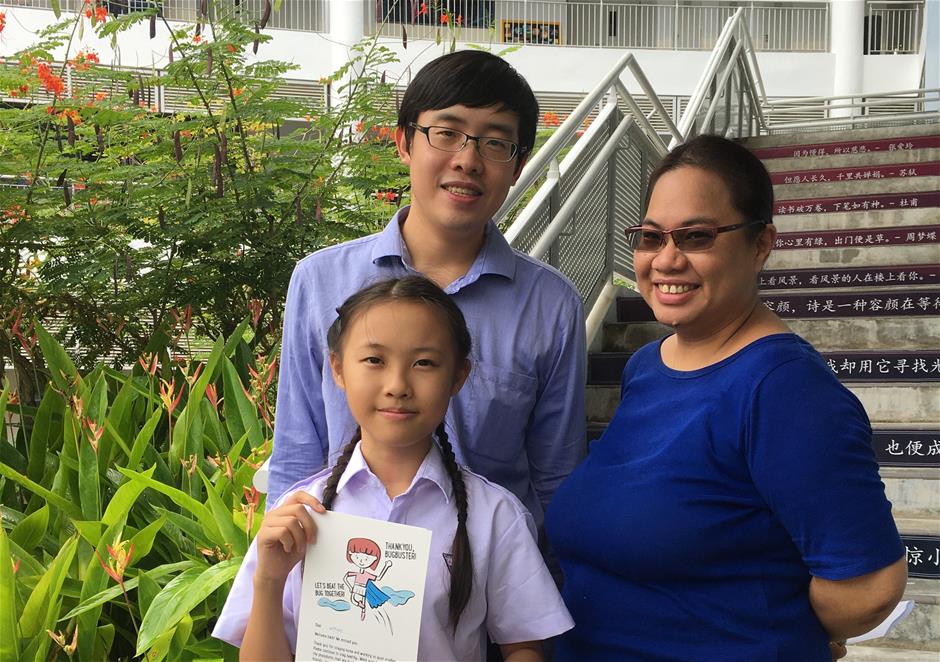
P3 students’ “Sail Away” Science project
Who
Primary 3 (P3) students
When
Since 2019
Why
P3 students are transitioning from P2 to P3 and have to grapple with one additional subject—Science. Pioneer Primary School wants the students to have sufficient time and space to adjust and adapt to the increased curriculum demand with the new subject.
Principal Mrs Lee Wai Ling says, “We want students to continue to love learning beyond just their textbooks. With this freed up time during the school curriculum, the school is able to engage students with different forms of learning, such as computational thinking skills through coding.”
What
Applied Learning Programme (ALP)
Pioneer Primary School has adopted Kolb’s Experiential Learning Cycle for their ALP, which focuses on thinking and communication skills, with various themes centred around environmental conservation. The ALP runs from P1 to P6.
P3 students in particular have a vibrant cross-disciplinary experience, including learning simple coding using SCRATCH 3.0 and Micro:bits.
In 2019, the cohort visited the NEWater Visitor Centre to learn about the Four National Taps – or the sources of water that Singapore relies on. This is echoed in their Social Studies classes.
During the visit, students observe and reflect on the activity related to water conservation and, through their teachers’ guidance, the students engage with and learn about concepts like how Singapore manages its resources to meet the needs of the country, or making inter-connected links to other limited resources.
Next, the students work in groups to create stories about water conservation by drawing storyboards, which some will later share with the lower primary students or kindergarten children to create awareness among the younger kids!
Also, students attend 12 hours of workshops conducted over 2 days at the school, where they learn coding and make their own water pumps in groups of 3 or 4 using Micro:bits. They first think critically about what they want to create before sharing their ideas for the coding sequence with their instructors.
Another group task requires the P3 students to collaborate and design sail boats using recycled materials. Students must use scientific concepts to figure out which recycled materials are suitable for water flotation and have the ability to sail a distance, before they start building. The best design from each class then gets to participate in a sailing competition.

A showcase of the P3 students’ colourful water pumps created using Micro:bits and coding
How
As students are learning new things other than their syllabus, changing the mindsets of the teachers is one challenge the school faces.
Principal Lee explains. “Everything had to start from scratch. Most of the P3 students have no coding background, apart from those in the InfoComm Club CCA. Even the teachers themselves have no prior knowledge of coding.
What we are doing is to have the instructors use differentiated instruction for the different learning profiles of the students, for instance, scaffold more for the low-progress students during coding lessons. We also encourage teachers to learn with the students, by providing them hands-on sessions to experience what the students are doing.
“This way, the teachers benefit from the coding workshops too and acquire basic coding skills.”
Tips for other schools
Principal Lee says, “Think of how to align the freed up space to student learning as an extension to the existing programmes, rather than something ad-hoc.”
In view of the pandemic situation and FHBL, the school compromised: asking students to share water saving strategies with residents in the community for school outreach programme by creating picture books.
And due to the circuit breaker, activities like making the water pumps and using drones to search for plastic pollution in the ocean for the P4s have been postponed.
“Still, even while learning journeys and VIA activities had been suspended,” Principal Lee adds, “lessons using videos and other means had continued, as long as students were able to acquire content knowledge and to reflect on their learning. During HBL, we took this opportunity to train our students on improving their oral skills online.”






